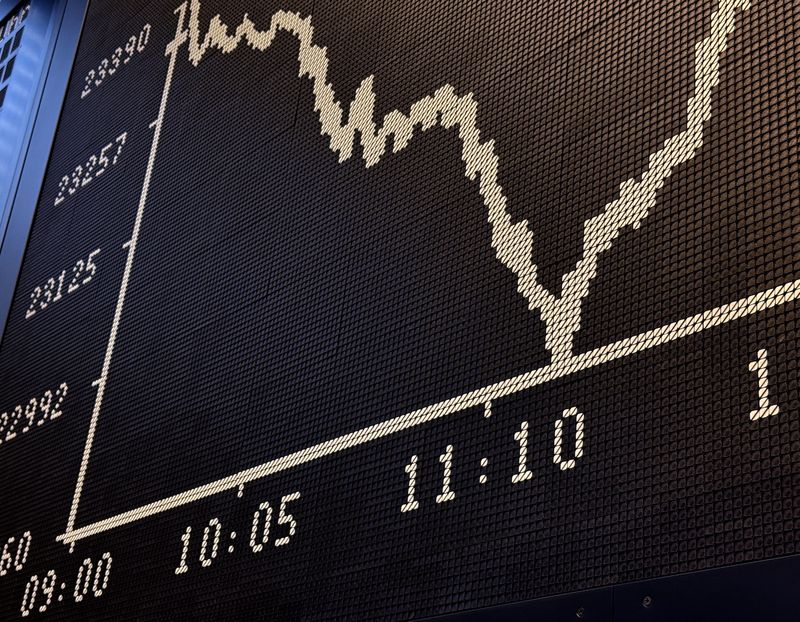By Alun John
LONDON (Reuters) -European stocks took an early lead in 2025, outperforming Wall Street thanks to erratic U.S. policymaking and Germany’s once-in-a-generation fiscal shift, but U.S. markets have caught up.
The broad European STOXX 600 (^STOXX) index was up 6.6% so far this year, as of Friday’s close, compared with 6.8% for the S&P 500 (^GSPC).
In March the STOXX was 10 percentage points ahead, leading European bulls to think this might be their time after years of European markets underperforming Wall Street.
Calls for European outperformance still ring true in currencies, however, with the euro up 14% against the dollar year to date.
Trade talks and the new U.S. tax-cut and spending law are tests for the rotation out of the U.S. and into Europe, said UBS Asset Management’s head of global sovereign markets strategy Max Castelli.
“I don’t think U.S. exceptionalism will come back with the same strength and intensity,” he said. “But I would not rule out the big period of outperformance of European assets over the U.S. being over.”
Here’s a look at how Europe’s performance against the U.S. stacks up.
Marija Veitmane, head of equity research at State Street Global Markets, said Wall Street shares started bouncing back in mid-April, partly because the “trade war became trade negotiations.”
But the “real turning point” was corporate earnings season when “tech CEOs stood up and said ‘Our earnings are going to be very strong’.”
Tech accounts for roughly one-third of the S&P 500, and the sector is up 24% since the start of April, even including its plunge when U.S. President Donald Trump announced his tariff plans.
Nvidia (NVDA), once again the world’s largest company by market cap, has risen an even more dramatic 45%, and there isn’t anything in Europe to match.
But by no means all investors are rushing back to Wall Street with the S&P 500 at record highs, suggesting valuations are getting stretched.
“The tariff announcement showed how fast sentiment can change and how risky these high (U.S.) valuations are,” said Madeleine Ronner, senior equity portfolio manager at asset manager DWS, adding that European valuations are more reasonable.
And while that gap had been appropriate because of slow corporate earnings growth, “Europe’s (earnings per share) is starting to grow again, and the differential is getting smaller, which should be reflected in valuations,” she said.


